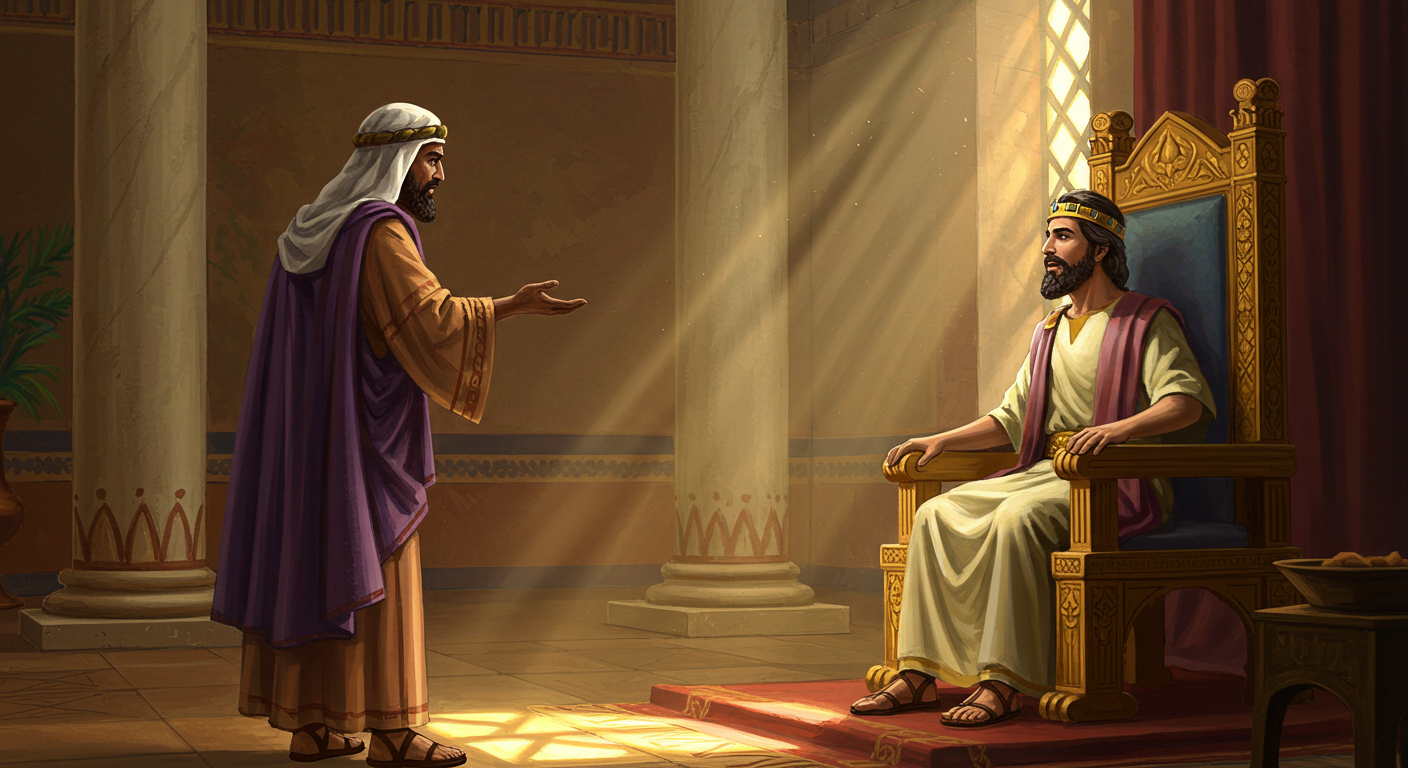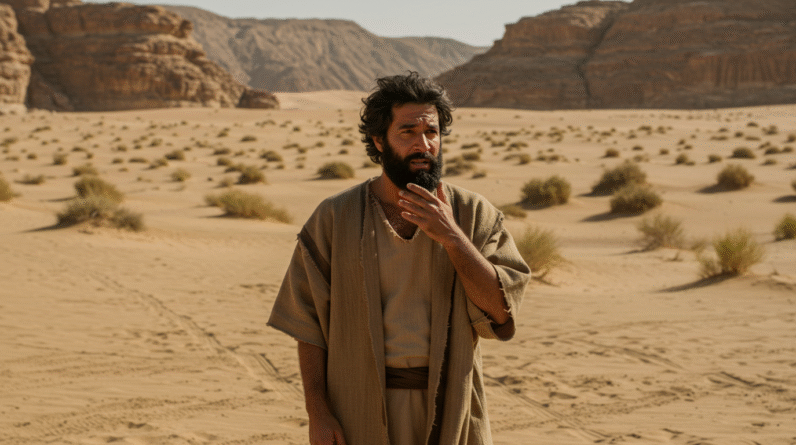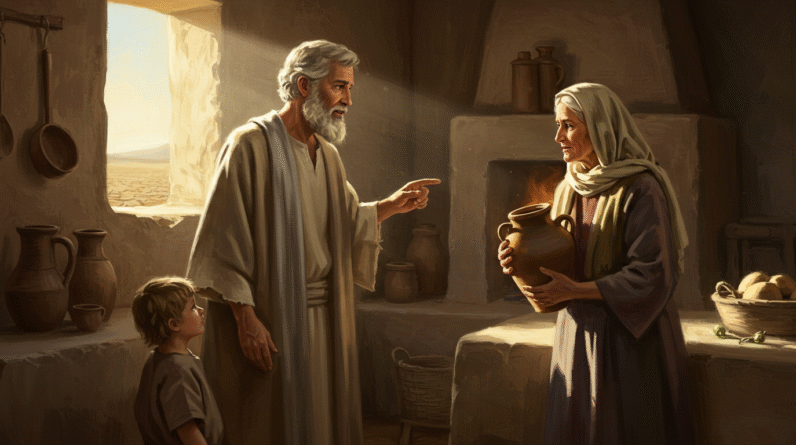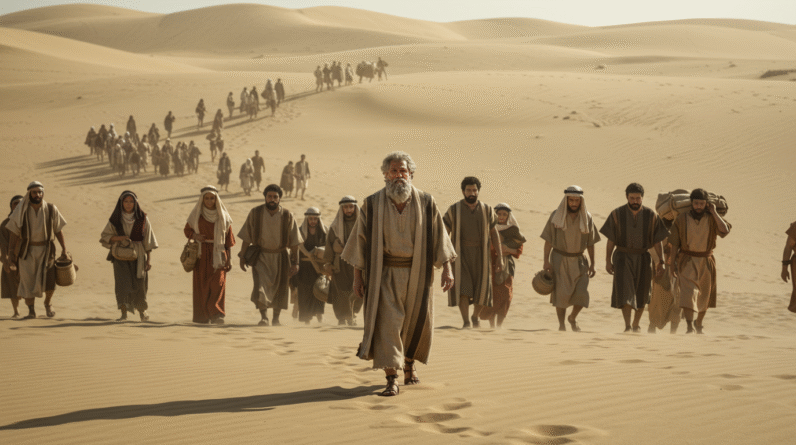Explore the unseen impact of Hanani, the biblical prophet who challenged leaders and emphasized divine reliance over worldly tactics in turbulent times.
Hanani: The Unseen Prophet of Challenge

Introduction
In the vast canvas of biblical history, some figures stand prominently while others remain overshadowed, yet their impact is undeniable. Hanani, the prophet, is one such character. Though often unseen in mainstream biblical discussions, Hanani’s influence and messages remain critical for understanding the challenges faced by leaders and the divine expectations set upon them. Hanani appears in the pages of the Old Testament not as a lengthy biographical account but rather as a powerful, concise voice delivering God’s message to kings who strayed. In particular, 2 Chronicles 16:7-10 highlights Hanani’s crucial role: “At that time Hanani the seer came to Asa king of Judah and said to him, ‘Because you relied on the king of Aram and not on the Lord your God, the army of the king of Aram has escaped from your hand.'”
Historical Background
Hanani’s era was a tumultuous time in the history of the kingdom of Judah, nestled in the Southern Kingdom during the divided monarchy. The cultural and political landscape was fraught with religious laxity and political alliances that often contradicted the theocratic principles bestowed upon Israel. This period saw the reign of Asa, a king who initially sought to reform the kingdom according to the ways of Jehovah but later succumbed to the allure of political expediency over faith. It was within this context that Hanani delivered God’s timely and straightforward messages. His significant confrontation with Asa highlighted the delicate interplay between human endeavors and divine directives.
God’s Call and Mission
Hanani seemed to have emerged suddenly, although with divine authority, to address specific instances where Judah’s leadership faltered. His primary mission and messages were centered around calling the people, particularly their leading figures, back to reliance on God rather than human strategy or alignment with pagan nations. Unlike some prophets who either willingly answered God’s call or hesitated, Hanani’s interactions with the kings demonstrate a direct, fearless engagement with the task set before him. He addressed the failings of Asa without reservation, emphasizing the importance of faithfulness and the dangers of misplaced trust.
Key Events and Prophecies
Though brief in his biblical appearances, Hanani’s impact is encapsulated in pivotal prophecies and confrontations. The interaction with Asa in 2 Chronicles 16 is perhaps the most notable event, where he denounces Asa’s reliance on foreign powers instead of God, a critical prophetic moment that reminds readers of the importance of divine reliance. While the text does not describe spectacular miracles usually attributed to prophets, Hanani’s prophecy itself was a significant warning that articulated God’s displeasure with Asa’s actions. This encapsulates the fundamental prophetic role of warning and redirecting the community toward divine fidelity.
Challenges and Opposition
Prophets often stood in opposition to the powers that be, and Hanani was no exception. Asa’s reaction to Hanani’s prophecy was an illustration of the difficulty prophets often faced. Surprisingly, instead of heeding Hanani’s warning, Asa imprisoned him, showcasing the deep resistance that prophets often encountered when their messages challenged the status quo of power and authority. This opposition from Asa also symbolizes personal struggles faced by many prophets—delivering a message of truth that would not be accepted or appreciated by their audience, often resulting in personal suffering or persecution.
Legacy and Impact
Though Hanani’s appearances in the scriptures are brief, his legacy and impact are undoubtable. He stands as an exemplar of prophetic courage, speaking truth to power even when threatened with adverse consequences. His fidelity and clarity in delivering God’s message left an indelible mark on the kingdom of Judah’s historical narrative, serving as a stern reminder to future generations about the consequences of turning away from divine guidance. Hanani’s efforts are echoed in the stories of other prophets who followed, showing unwavering commitment to divine truth, a trait highly valued throughout the biblical narrative.
Lessons from Hanani
From Hanani’s life and mission, several spiritual lessons can be gleaned. The central theme is reliance on God rather than human constructs or alliances, a message that reverberates down the corridors of time, urging believers even today to trust in divine wisdom over worldly strategy. His example also underscores the importance of courage in faith—a willingness to stand firm in divine truth regardless of personal cost. For readers, Hanani’s life is a call to evaluate where their trust lies and courageously follow the path of faith, regardless of the opposition faced.
Conclusion
Hanani’s role in biblical history, while brief, offers profound insights into the importance of prophetic voices, especially in times of moral or spiritual crisis. His story invites readers to consider their reliance on God in all aspects of life and the courage to speak truth to power. Let Hanani’s life encourage you to examine your path and challenges, always trusting that adherence to divine guidance will lead to true fulfillment. Are you ready to embrace this call to faithfulness, confronting challenges with discernment and courage? If this article resonated with you, please clap, leave a comment, and subscribe to your Medium newsletter for more insightful articles.
Acknowledgment: All Bible verses referenced in this article were accessed via Bible Gateway (or Bible Hub)







